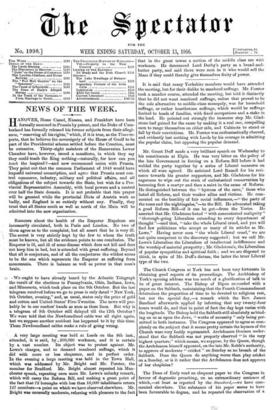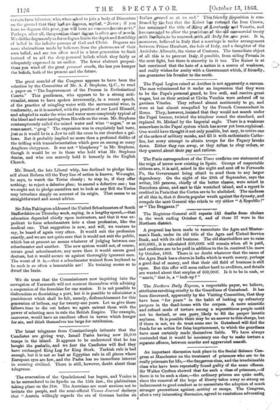The Dean of Emly read an eloquent paper to the
Congress in favour of dogmatic preaching, on an extraordinary sentence of which,—at least as reported by the Standard,—we have com- mented elsewhere. The substance of his paper seems to have been favourable to dogma, and he repeated the observation of a
certain farm labourer, who, when *ked to join a body of Dissenters on the ground that they leid:no dpginaa, %Never ; if you have no dogmas this year,-,yog will have 30 copmandmentspext;' Perhaps, after all, thequeskipa about dggep ie.oftengne of Fordo. We dislike dogmaonly so far as dogma limits the depth and flexibility of belief in the infinite persons of God and Christ. Dogmas are mere abstractions made by believers from the phenomena of their own belief, and are too often used in a later generation to limit instead of to aid the deep personal beliefs which they fairly or adequately expressed in an earlier. The fewer abstract proposi- tions you wind off the great personal creeds, the less you hamper the beliefs, both of the present and the future.































